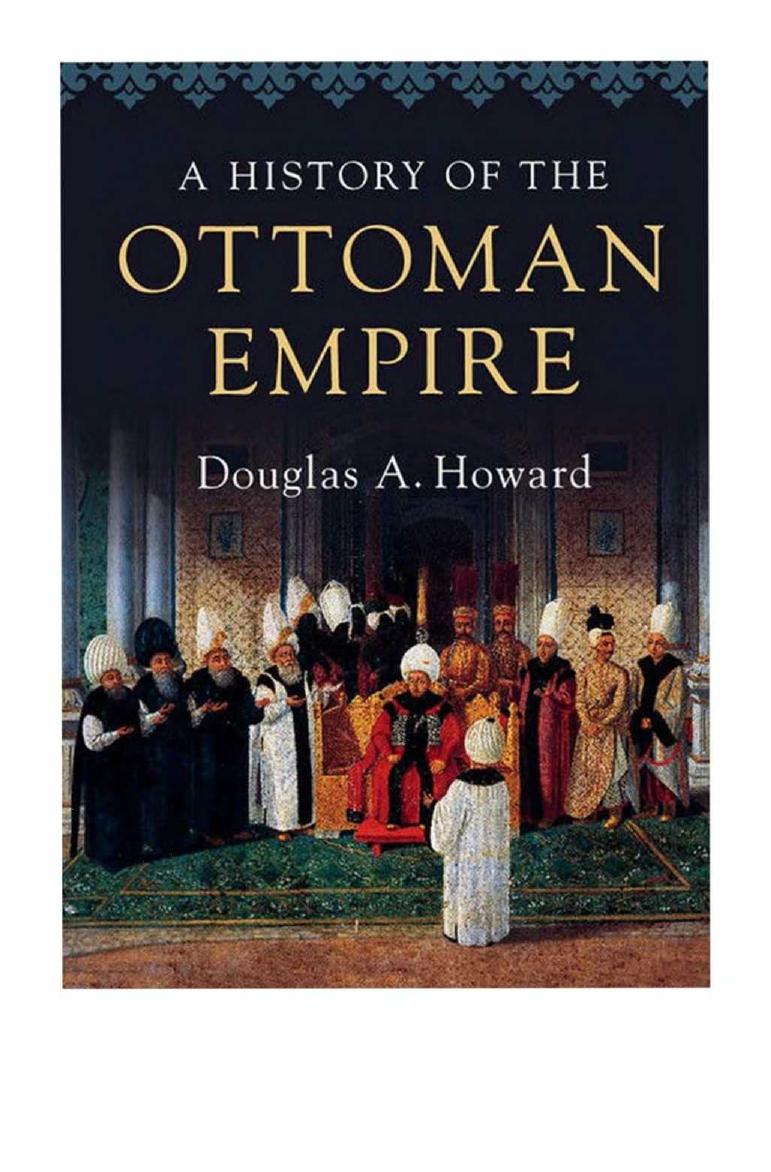A History of the Ottoman Empire by Douglas A. Howard

Author:Douglas A. Howard [Howard, Douglas A.]
Language: eng
Format: epub, azw3, pdf
Publisher: Cambridge University Press
Published: 2017-05-29T16:00:00+00:00
Books, Manuscripts, and Libraries
This spiritual and cultural life, like the commercial revival, was grounded in a widespread literacy, and it did not stop at interfaith boundaries. Hebrew-language printing presses operated in Istanbul, Salonika, and Cairo,64 an Armenian-language press in Istanbul. In 1726 an Ottoman Turkish printing press was also founded, by a pair of Istanbul Muslim businessmen. Ibrahim Müteferrika, a Hungarian Unitarian native of Cluj in Transylvania, who had become a Muslim in his youth; and a member of the grand vezir’s staff, whose father had led a famous embassy to France. The two partners won the enthusiastic support of the grand vezir, the sultan, and the Mufti of Istanbul. The Müteferrika press knew its audience and its product. Books were expensive to produce, and the Arabic script, cursive by nature, did not lend itself easily to the technicalities of printing. Printing could, however, prove superior under certain conditions. Among its sixteen publications the Müteferrika press concentrated on lengthy, technically difficult titles, and on works of current intellectual interest, especially philology and history. It did not attempt to compete with religious books and the Koran, since most households already either had a nice handwritten copy or could order one cheaply. And some Muslims did object to printing the scriptures, as did some Jews (recall that Sabbatai Sevi had courted condemnation by reading the Torah from a printed book). What Müteferrika did publish, in print runs of five hundred or a thousand, were several multi-volume works, Katib Çelebi’s World Panorama with its many maps and illustrations, and dictionaries. A qualified success, the Müteferikka Press survived the breakup of the original business partnership and sold more than two-thirds of the copies printed before it folded with Müteferikka’s death.65 His will left the remaining stock to his daughter.66
Demand ensured the continued vitality of the manuscript trade nonetheless, among both Muslims and non-Muslims.67 Molla Mustafa of Sarajevo knew many who were copyists on the side as he was, even a blacksmith and a grocer. Libraries throughout the Ottoman world contain many more manuscripts copied in this period than earlier, in all fields from the sciences to poetry, and probate records show the impressive extent of private manuscript collections in Istanbul, Cairo, Damascus, the Lebanon, and elsewhere. Paper was cheap, a copy of a work could be ordered quickly, and the book-manufacturing guilds could provide a fine appearance and a sturdy binding, good for multiple readings shared among friends. Individual desire, rather than mass marketability, governed production. Molla Mustafa mentioned that a friend of his had produced a manuscript of Vankulı’s massive Arabic–Turkish dictionary, a prodigious accomplishment, even decades after it was printed by the Müteferikka Press. In the probate inventory of his friend’s library, it was listed as his most valuable text.68
A great number of independent libraries appeared in Istanbul and elsewhere, even in faraway border fortresses.69 The first public library, the Köprülü Library in Istanbul (1661),70 was part of the philanthropic complex founded by Fazıl Ahmed Köprülü in honor of his father. Its
Download
A History of the Ottoman Empire by Douglas A. Howard.azw3
A History of the Ottoman Empire by Douglas A. Howard.pdf
This site does not store any files on its server. We only index and link to content provided by other sites. Please contact the content providers to delete copyright contents if any and email us, we'll remove relevant links or contents immediately.
| Africa | Americas |
| Arctic & Antarctica | Asia |
| Australia & Oceania | Europe |
| Middle East | Russia |
| United States | World |
| Ancient Civilizations | Military |
| Historical Study & Educational Resources |
Empire of the Sikhs by Patwant Singh(23070)
The Wind in My Hair by Masih Alinejad(5085)
Rise and Kill First by Ronen Bergman(4777)
The Templars by Dan Jones(4681)
The Rape of Nanking by Iris Chang(4201)
12 Strong by Doug Stanton(3541)
Blood and Sand by Alex Von Tunzelmann(3193)
Babylon's Ark by Lawrence Anthony(2671)
The History of Jihad: From Muhammad to ISIS by Spencer Robert(2618)
No Room for Small Dreams by Shimon Peres(2362)
The Turkish Psychedelic Explosion by Daniel Spicer(2352)
Inside the Middle East by Avi Melamed(2349)
Gideon's Spies: The Secret History of the Mossad by Gordon Thomas(2337)
Arabs by Eugene Rogan(2292)
The First Muslim The Story of Muhammad by Lesley Hazleton(2263)
Come, Tell Me How You Live by Mallowan Agatha Christie(2248)
Bus on Jaffa Road by Mike Kelly(2150)
1453 by Roger Crowley(2022)
Kabul 1841-42: Battle Story by Edmund Yorke(2020)
